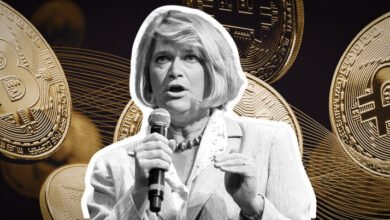Trump Treasury Nominee Scott Bessent Opposes U.S. Central Bank Digital Currency, Signaling Potential Policy Shift

During Thursday Senate confirmation hearing, Scott Bessent, President-elect Donald Trump’s nominee for Treasury Secretary, voiced firm opposition to the creation of a U.S. central bank digital currency (CBDC). His comments have reignited debates about the future of digital currencies in the United States and the role of federal policy in the evolving digital economy.
Bessent Rejects U.S. CBDC Initiatives
“I see no reason for the U.S. to have a central bank digital currency,” Bessent told the Senate Finance Committee. “In my mind, a central bank digital currency is for countries who have no other investment alternatives.” This position underscores a stark contrast to ongoing efforts by federal agencies under previous administrations to explore a digital dollar.
Bessent’s nomination and his views align with President-elect Trump’s campaign promise to block any initiatives aimed at implementing a CBDC. Trump’s stance, announced a year ago, reflects broader Republican opposition to CBDCs, which many critics argue could lead to government overreach and increased surveillance.
Potential Impact on Federal CBDC Research
If confirmed as Treasury Secretary, Bessent’s appointment could signal a pivot away from years of research into a U.S. CBDC. His statements align with the Anti-Surveillance State Act, passed by the House in May 2024, which restricts Federal Reserve banks from directly or indirectly issuing digital currencies.
The act echoes growing concerns among policymakers and the crypto community about potential privacy risks associated with CBDCs. Opponents argue that a central bank-issued digital dollar could expand federal surveillance capabilities, undermining individual freedoms and financial privacy.
Global CBDC Landscape
Bessent’s opposition comes as 134 countries, accounting for 98% of global GDP, actively explore CBDCs, according to the Atlantic Council. China leads the charge with its digital yuan, which has already been tested in high-profile events like the 2022 Winter Olympics in Beijing. Major economies like the European Union and India are also advancing their own CBDC projects.
In contrast, U.S. initiatives have been slower and more cautious. The Federal Reserve began studying CBDCs in 2021, releasing a detailed report in 2022 that outlined potential benefits and risks. Despite this groundwork, Federal Reserve Chair Jerome Powell emphasized in August 2023 that implementing a CBDC in the U.S. would require congressional approval. Powell noted that while other nations are actively pursuing CBDCs, “we’re really not.”
Divided Views on CBDCs
Current Treasury Secretary Janet Yellen has expressed support for exploring CBDC, echoing President Biden’s 2022 executive order on the “responsible development” of digital assets. However, voices from the crypto community, including Ethereum co-founder Vitalik Buterin, have expressed skepticism. In 2023, Buterin highlighted concerns over CBDCs’ potential to increase government surveillance, marking a departure from the initial optimism about their transparency and security features.
The Path Ahead
Bessent’s remarks reflect a significant shift in the U.S. government approach to digital currencies, aligning with Trump’s vision of prioritizing traditional financial systems. With the Treasury Secretary confirmation vote pending and Trump’s inauguration set for January 20, the future of U.S. participation in the global CBDC race remains uncertain.
As the debate unfolds, the U.S. stands at a crossroads in determining its role in the rapidly digitizing global economy. Whether Bessent’s stance will reshape the federal government’s trajectory on digital assets is a question that could have lasting implications for both domestic and international markets.



